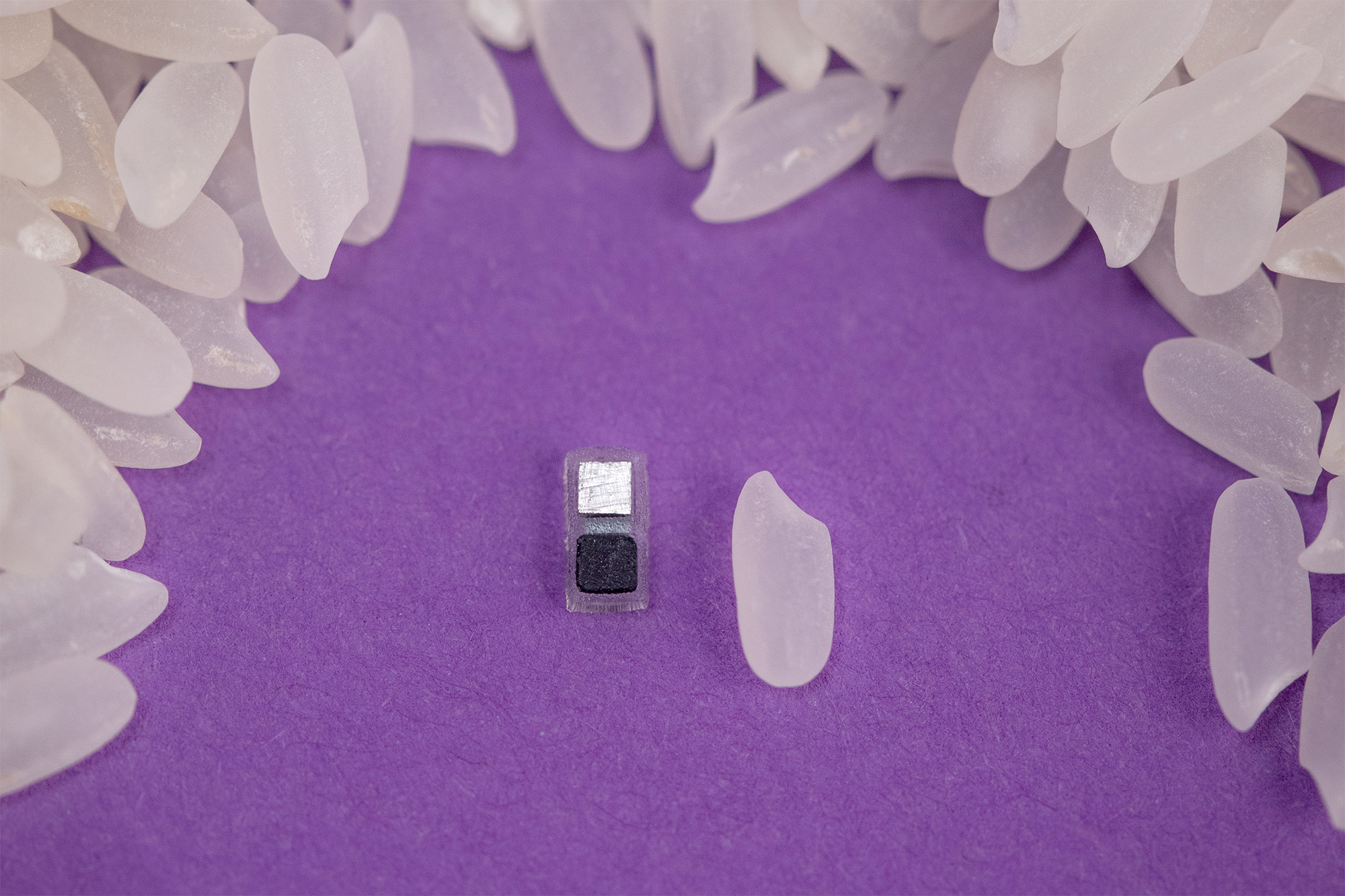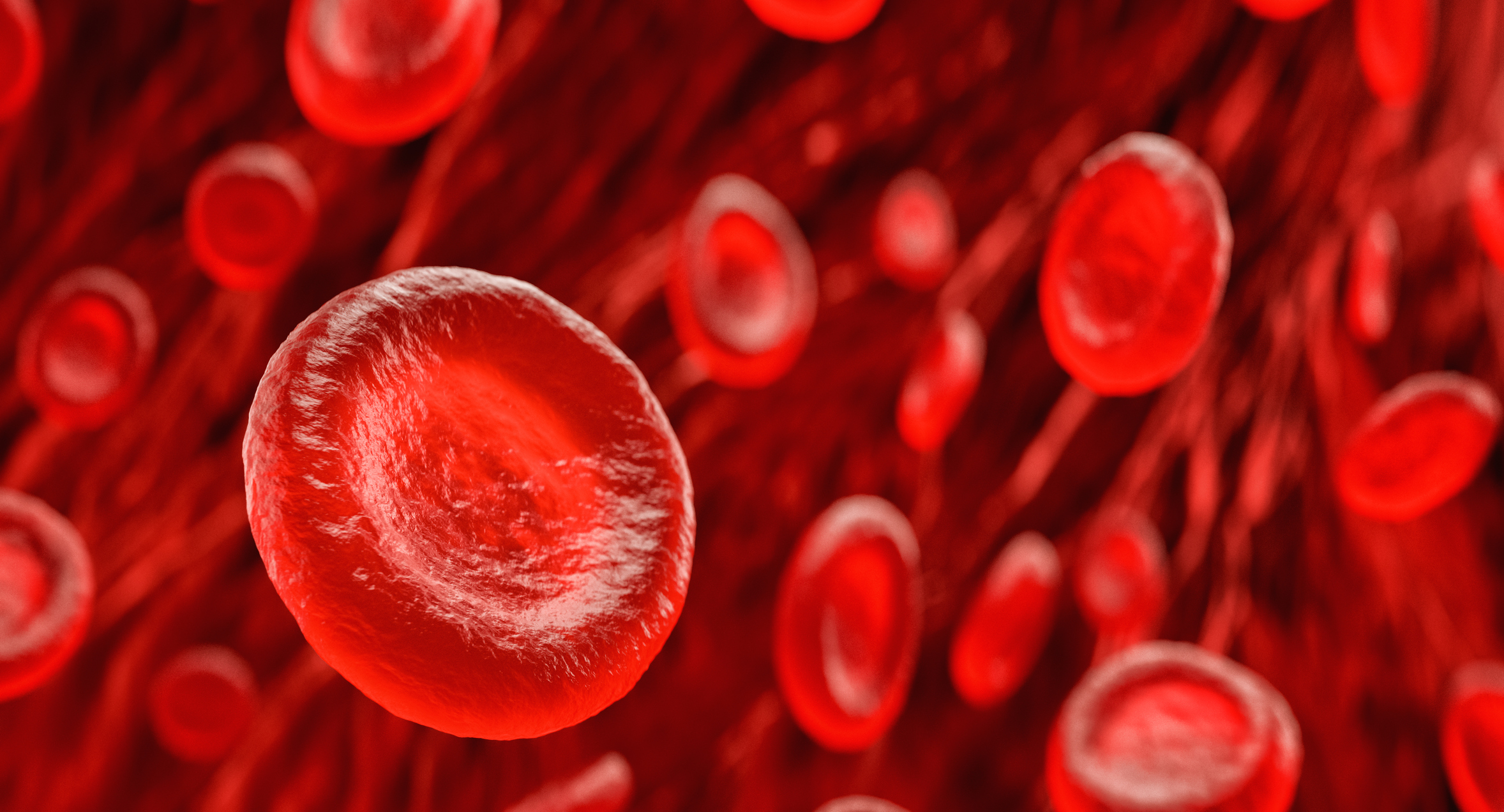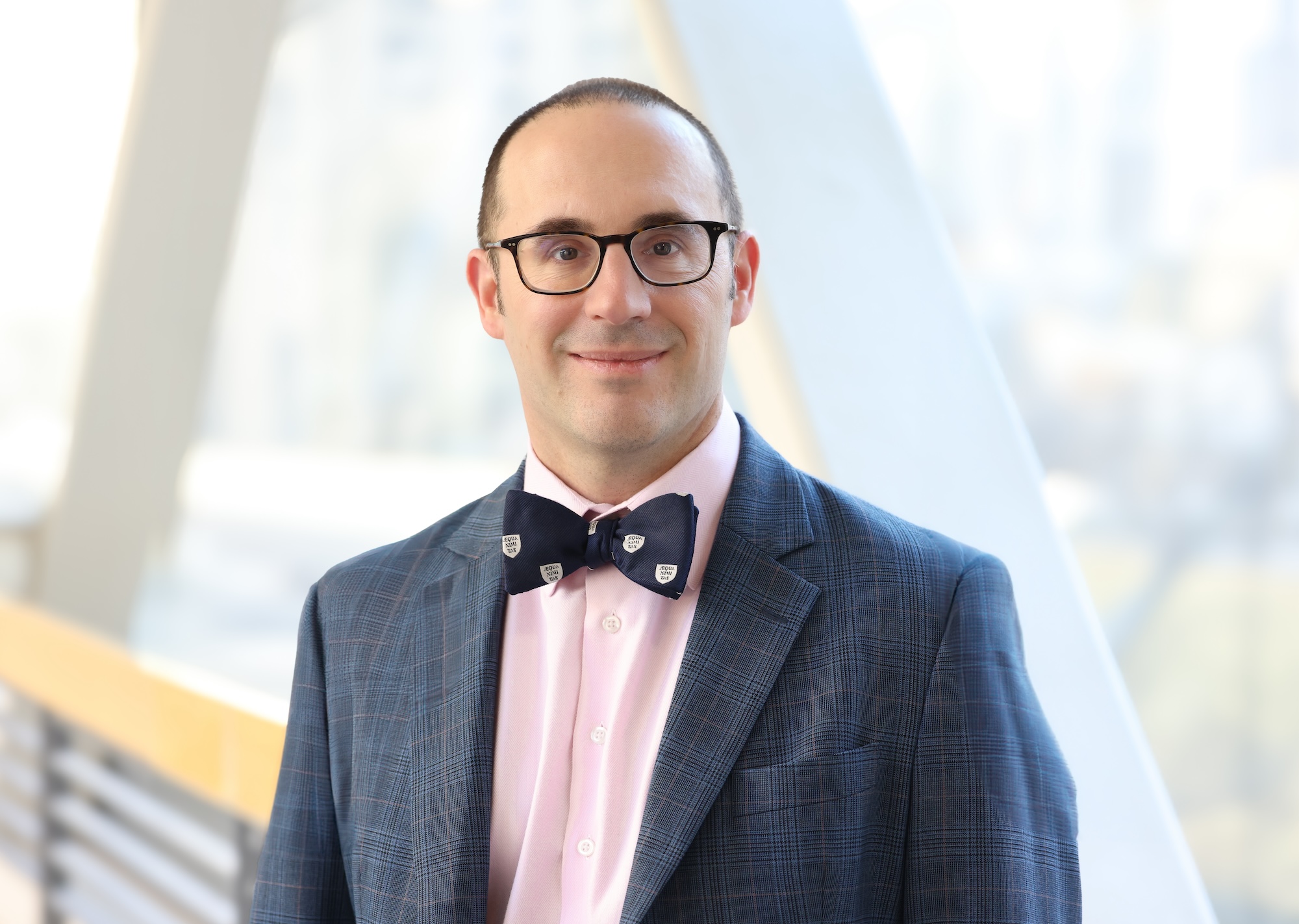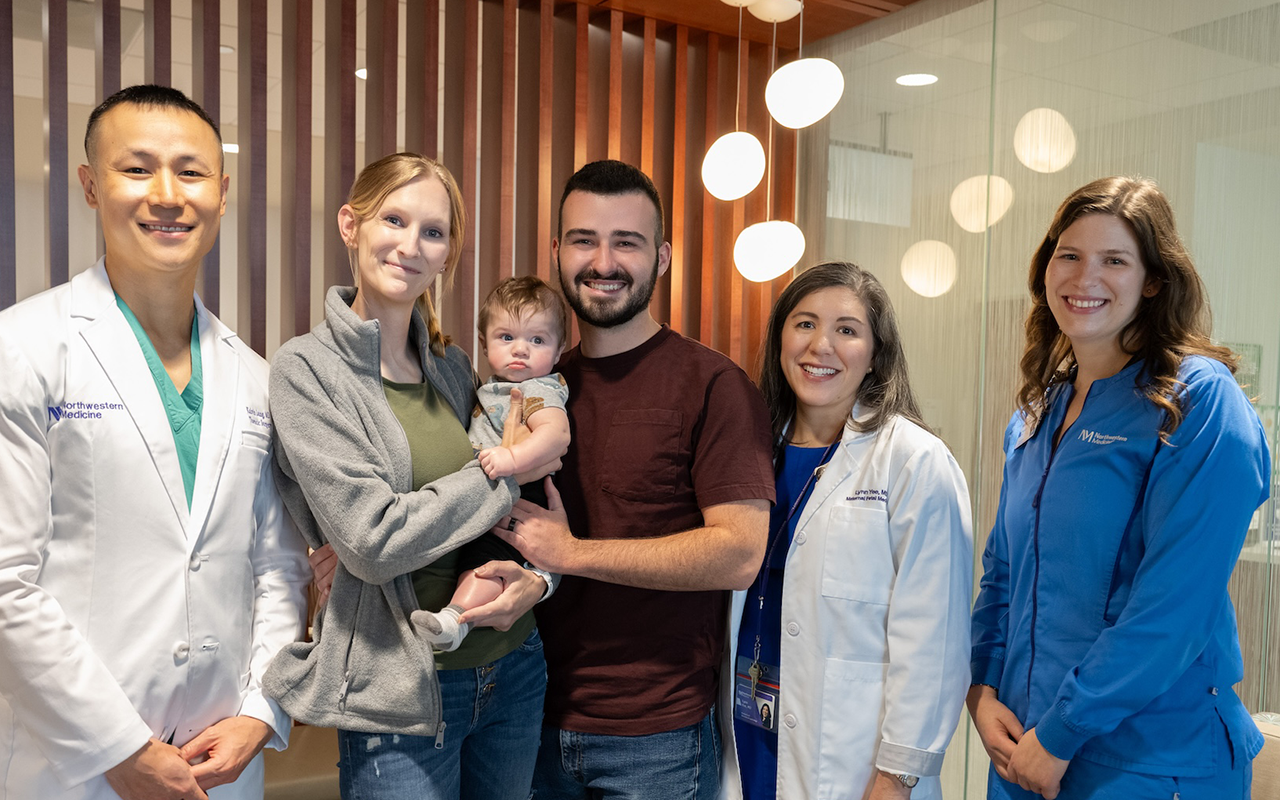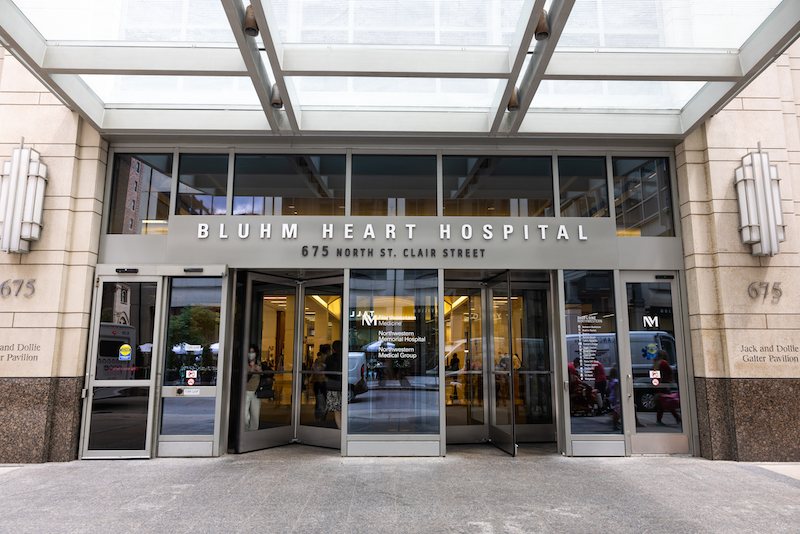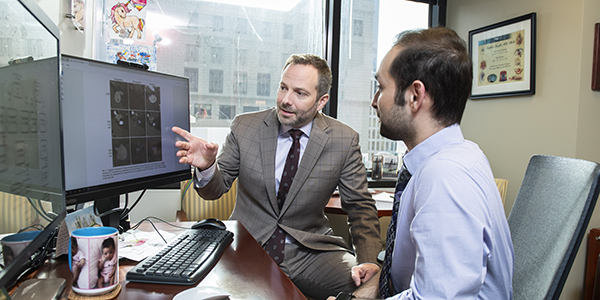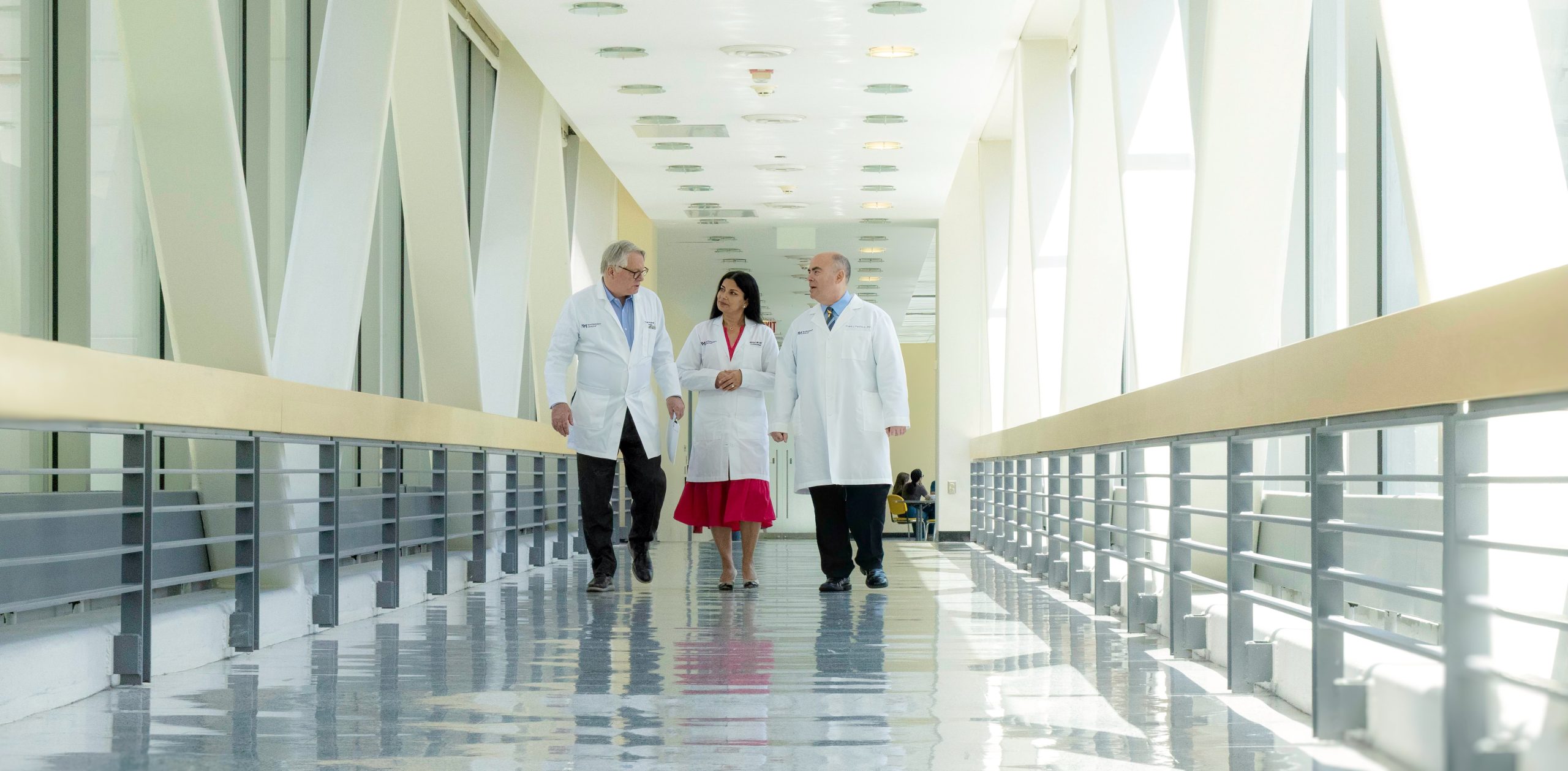Creating Positive Change and Putting Patients First
Susan Quaggin, MD, newly appointed chair of the Department of Medicine, focuses on advancing medicine by enhancing patient care and health equity.
By Cheryl Soohoo
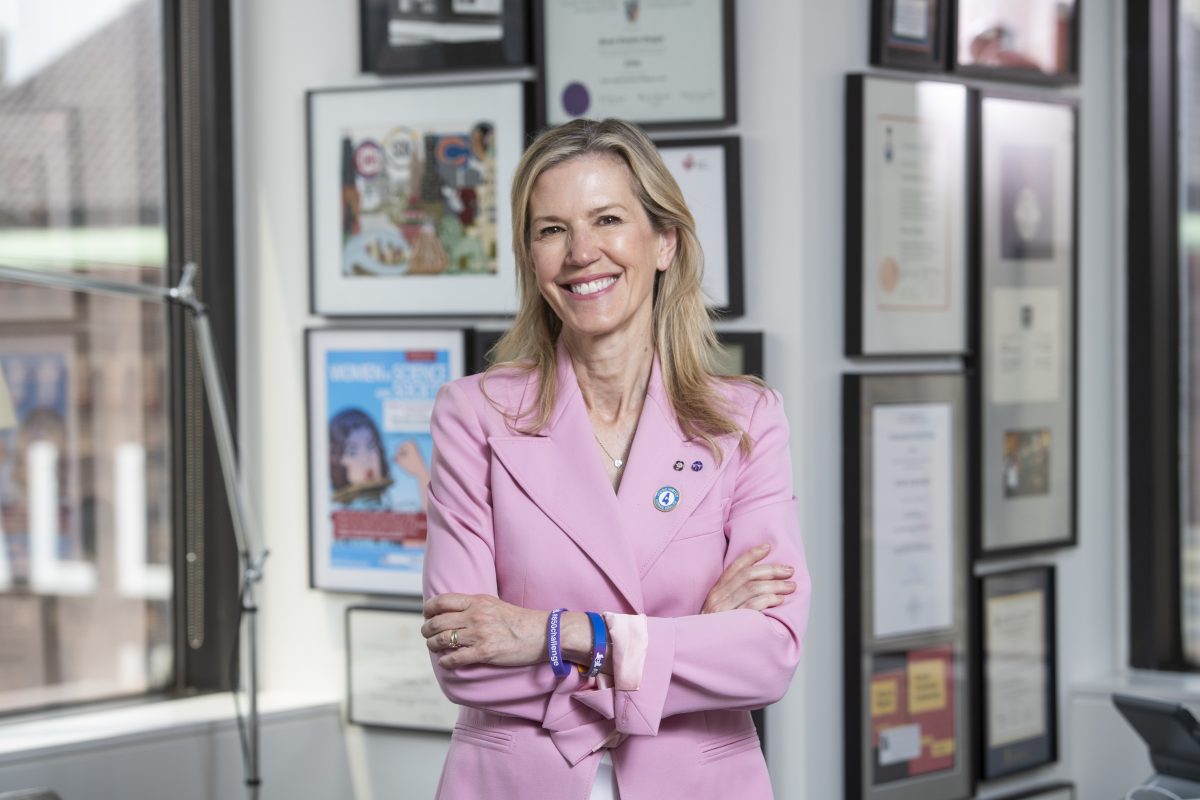
Susan Quaggin, MD, has always had a positive outlook on life. Even during the worst of times of the COVID-19 pandemic, this nephrologist found positive aspects as she and her Feinberg School of Medicine colleagues quickly came together to save lives.
While the clinicians at Northwestern Medicine shouldered a major portion of the burden of caring for the critically ill in hospitals and clinics during the height of the global health crisis, the Department of Medicine at Feinberg also provided support in other areas. The impact the deadly virus had (and continues to have) on many different parts of the body — from the lungs, heart, and kidneys to the GI system — required medical expertise from a variety of medical specialists. And as the largest department with 12 internal medicine divisions and more than 900 full- and part-time faculty, 350 trainees, and 650 staff members, the Department of Medicine at Feinberg played a significant role in advancing the research and science of the virus.
“I was struck by how everyone in our department and at Northwestern Medicine supported each other to make things happen and get things done for patients when the pandemic hit,” Quaggin says. “It was an incredible time of unity and camaraderie during what felt like, at times, the Wild West. It showed me that we have an opportunity — and the ability — to make rapid and effective changes that will shape the future of healthcare and medicine.”
Now, Quaggin plans to seize upon this new post-pandemic moment as the new chair of the Department of Medicine. The first woman to serve in this role at Northwestern University, she builds on her previous leadership position as the chief of the Division of Nephrology and Hypertension. She follows former chair, Douglas E. Vaughan, MD, who announced his intention to step down last summer after 15 years of distinguished leadership. In her new role, Quaggin looks forward to taking the department into the next era of medicine — one that will strengthen the delivery of equitable care and the promotion of health justice beyond the single patient to communities at large.
“We demonstrated how well we could help patients during the pandemic; imagine what we can do during non-crisis times.” says Quaggin, who is also the Irving S. Cutter Professor of Medicine and physician-in-chief at Northwestern Memorial Hospital and Northwestern Medical Group. In addition, Quaggin remains director of the Feinberg Cardiovascular and Renal Research Institute. “We have the expertise, talent, and commitment to step out in front and lead all the positive changes currently taking place in healthcare nationally and globally.”
FROM NORTH TO SOUTH
Quaggin decided to pursue a career in medicine during high school when she was introduced to the profession by the father of her boyfriend (now husband). Inspired by her future father-in-law, who had a passion for caring for his patients, the Montreal-born and Toronto-raised Quaggin decided to follow in his footsteps.
“Doc, as everyone called him, was really the reason I became a physician,” she says.
At the University of Toronto, Quaggin completed medical school and then residency training in internal medicine. Her first official leadership role in the healthcare field came in 1991 when she served as chief medical resident at St. Michael’s Hospital, a University of Toronto teaching affiliate. A fellowship in clinical nephrology followed at her alma mater.
After honing her clinical acumen, Quaggin looked to build her science skills. “Better addressing patient health issues for me came down to knowing more about the causes of disease and their molecular underpinnings,” she says. “Uprooting my family with our first child, a newborn baby girl, in tow, we moved to the States where I could learn the molecular biology of kidney development at Yale.” In 1993, she started a postdoctoral fellowship in the Ivy League research laboratory of Peter Igarashi, MD, now the dean of the Renaissance School of Medicine at Stony Brook University. In the Igarashi lab, Quaggin began to understand the role of transcription factor action and fundamental genetic pathways essential to healthy kidney development and function.

We have the expertise, talent, and commitment to step out in front and lead all the positive changes currently taking place in healthcare nationally and globally.
Susan Quaggin, MD
Three years later, Quaggin returned to the University of Toronto, where she completed a second postdoctoral fellowship in mouse genetics in the lab of noted developmental biologist and stem cell pioneer Janet Rossant, PhD, in 1998. Following the traditional academic medicine path, Quaggin developed her own independent lab, successfully competed for grants, and began conducting novel studies in the area of kidney and vascular health. All the while, she also worked to establish her clinical practice to help patients with kidney conditions.
An increasingly accomplished physician-scientist, Quaggin was soon elected to take on prominent leadership roles with groups such as the American Society of Clinical Investigation and International Society of Nephrology. In 2011, she was appointed deputy editor of the Journal of the American Society of Nephrology where she worked closely with Eric G. Neilson, MD, vice president for medical affairs and Lewis Landsberg Dean. By that time, as her career trajectory rose, Quaggin had built a valued friendship with Neilson as their paths crossed at conferences and presentations around the world. “A great mentor for many people, he has been a wonderful sounding board and advisor for me,” she says.
Meanwhile back in Toronto, Quaggin and her spouse, Kevin Smith, were happily raising a daughter and two sons in their native Canada. Quaggin had turned down various leadership roles in the U.S. as her next career step. The timing had not been right — until it was in 2012 when Neilson came calling with an offer to join Northwestern as head of the Division of Nephrology and Hypertension. The opportunity to build on the innovative science and clinical offerings of the division on both the Chicago and Evanston campuses was too good to pass up. In 2013, Quaggin moved her family to the Windy City for the first of her many leadership roles at Northwestern and beyond.
LEADERSHIP STRENGTH
In the 10 years leading up to chairing the Department of Medicine, Quaggin has not rested on her laurels, although there have been many. For example, she was instrumental in helping launch Northwestern Medicine’s first home dialysis program — a treatment strategy pioneered in Toronto, Canada — to improve outcomes and increase options for patients with kidney disease and failure. She has conducted extensive kidney and vascular health research at Feinberg using her scientific expertise to help advance understanding of kidney and vascular diseases. As director of the Feinberg Cardiovascular and Renal Research Institute, she is continuing to lead a critical mass of investigators to put Northwestern on the map for breakthrough cardiovascular and nephrology research — from the discovery of new therapeutic targets in diseases of the kidney, heart, blood, and lymphatic vessels to development of new technologies and platforms to accelerate discovery.
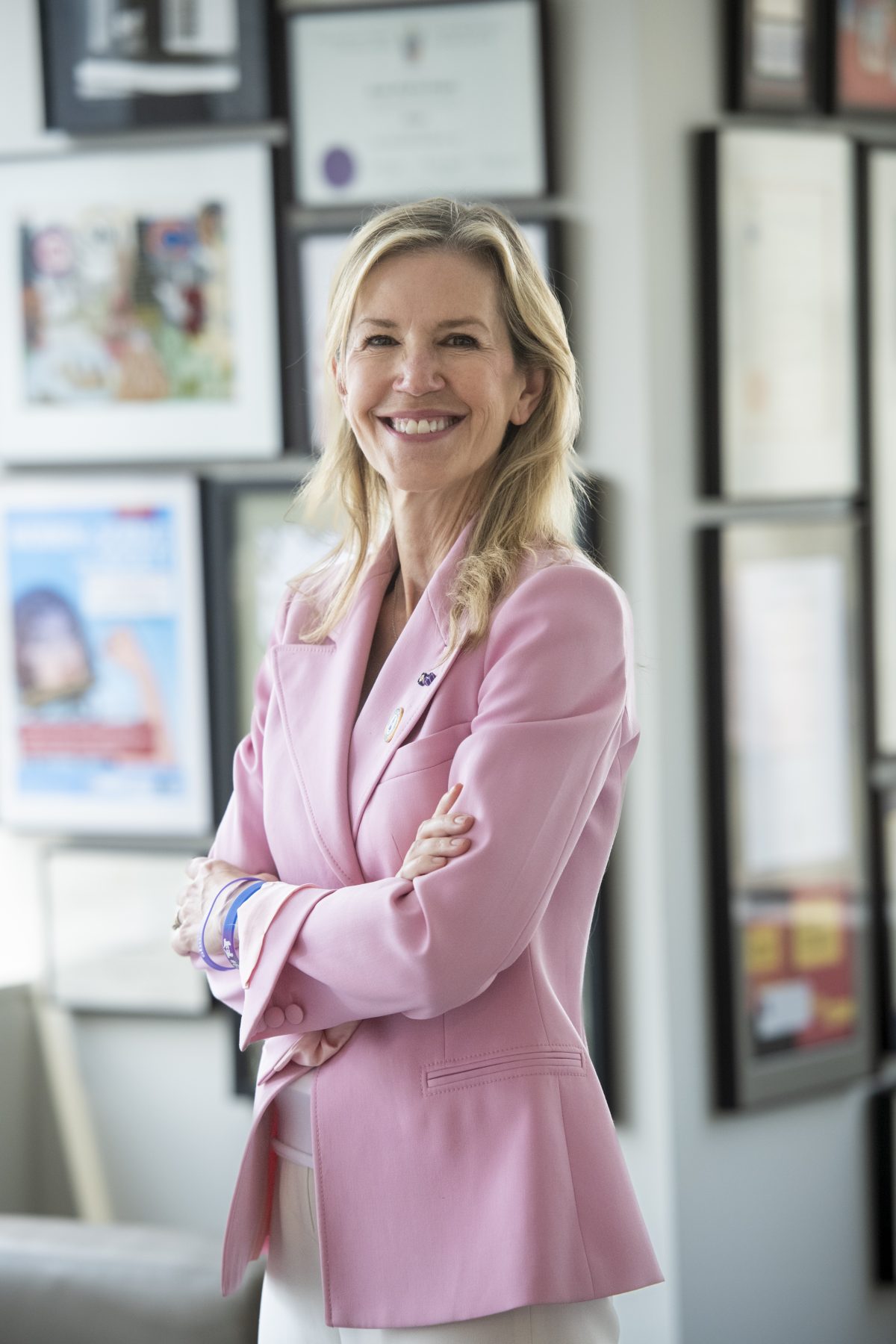
Since assuming her new leadership role, Quaggin and her team have been developing a strategic plan guided by Northwestern Medicine’s core mission of “Patients First.” Enhancing engagement and communication have been among the first major pushes of Quaggin’s administration. “With close to 2,000 faculty, trainees, and staff across multiple sites, a large department like ours naturally has silos,” she explains. “Right now, we are working to break those down so we can build the foundation for developing a health system that will revolutionize healthcare through research, education, and clinical innovation.”
(Photo credit: Gr8y Productions)
An American Heart Association distinguished scientist, Quaggin is immediate past president of the American Society of Nephrology (ASN), an elected member of the National Academy of Medicine, the National Academy of Inventors, and the American Academy of Arts and Sciences, and is serving as an elected councilor of the Association of American Physicians. She credits her many mentors for supporting her leadership journey and the experiences she gained that will inform her way forward as a department chair.
In fact, it was involvement in a national effort during Quaggin’s 2021 to 2023 tenure as ASN president that further convinced her that being in a position to make positive change is a privilege, honor, and a challenge she would relish. In September 2021, following a nationwide call to remove social constructs from clinical algorithms, the more than 21,000-member organization, in partnership with the National Kidney Foundation, was the first specialty organization to establish a taskforce to reassess the use of race in clinical algorithms. The two largest organizations representing health professionals and kidney patients recommended a new race-free approach to diagnosing chronic kidney disease. Intended to help eliminate racial disparities and promote healthcare justice, this important recommendation has now been implemented throughout the United States. Until this point, laboratory diagnostic tests had used a race variable to detect and assess kidney disease, which led to inequitable outcomes for racial and ethnic minority groups already disproportionately impacted by diabetes, hypertension, and kidney disease.
“All of a sudden, I had this bully pulpit to advocate for issues for which I felt deeply passionate,” Quaggin says, reflecting on the interviews she gave to news agencies around the country and meetings she had with policymakers in Washington, D.C. “It was an opportunity of a lifetime to work with an incredible team to help make a difference, and I loved it! That’s how I feel about leading the Department of Medicine and am so excited for what we can accomplish as we look ahead.”

